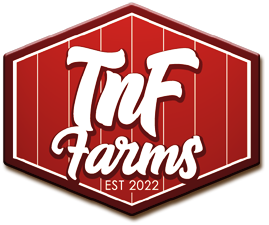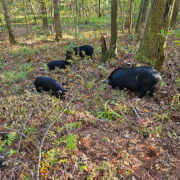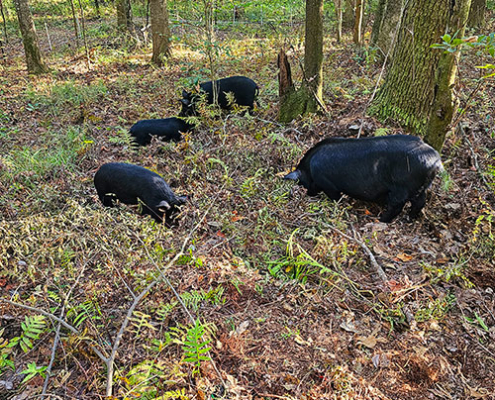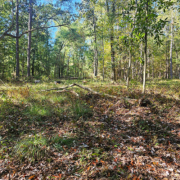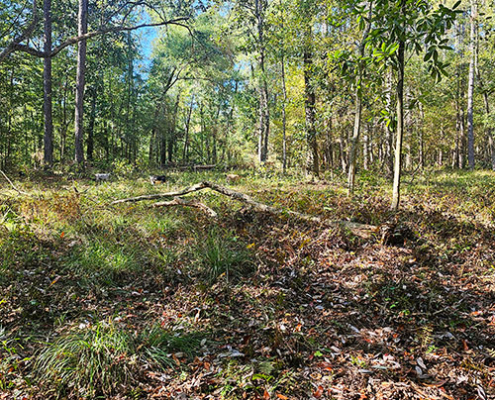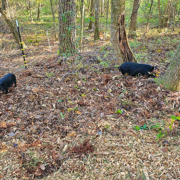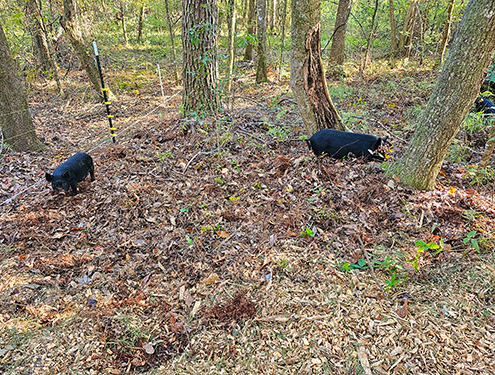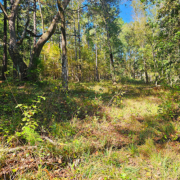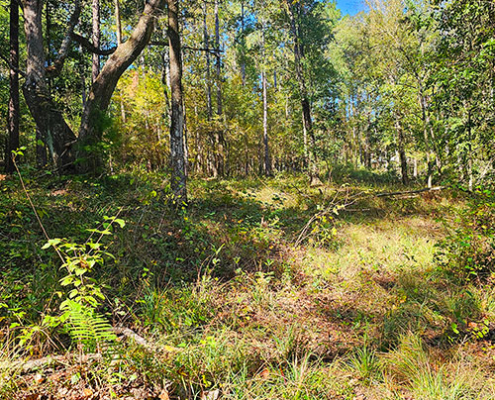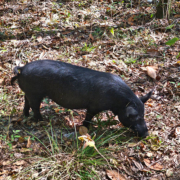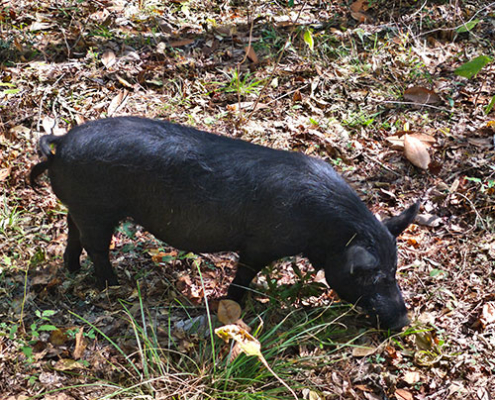Have you ever considered what’s in the pork you eat?
 Long before TnF Farms, or even living in Florida, I watched a television show that showcased some of the massive animal farms located around Las Vegas. According to Google, approximately 32 million people visit Las Vegas every year. Along with the existing population of over 600,000 people. All of these people are going to eat, multiple times a day. There was one massive farm in particular that stood out. The pig farm. The owner of the farm worked out a deal with area casino restaurants to take all the leftovers and food waste to feed to his pigs. The farm basically had no feed bill and had an endless supply of free food to feed these pigs. Those very pigs then became pork that was then sold back to the casinos to be served as food. At the time, I never considered that these pigs were being fed worst possible food and were probably sickly when they were taken to slaughter.
Long before TnF Farms, or even living in Florida, I watched a television show that showcased some of the massive animal farms located around Las Vegas. According to Google, approximately 32 million people visit Las Vegas every year. Along with the existing population of over 600,000 people. All of these people are going to eat, multiple times a day. There was one massive farm in particular that stood out. The pig farm. The owner of the farm worked out a deal with area casino restaurants to take all the leftovers and food waste to feed to his pigs. The farm basically had no feed bill and had an endless supply of free food to feed these pigs. Those very pigs then became pork that was then sold back to the casinos to be served as food. At the time, I never considered that these pigs were being fed worst possible food and were probably sickly when they were taken to slaughter.
My whole life, I wanted to be a serial entrepreneur. Pig farmer wasn’t even on my radar back then. After watching that show, the business parts of my brain glowed red hot with the concept of low overhead, high value, high volume products. Looking back, I’ve had a few businesses over my career. Nothing ever made me the tetra-jillionare I hoped to become.
And here I am. On TnF Farms with a small herd of American Guinea Hogs following me around hoping I have a treat for them.
The TnF Farms philosophy
Since this post is about pigs, I’m going to speak with that philosophy in mind. We try to keep our American Guinea hog population low. We also try to keep our pigs rotating around the fenced areas of our property. Why? Because we want them to eat the nuts that fall out of our trees along with natural flora growing on our property. If we keep rotating the livestock around our fenced areas, the inactive areas get time to grow back and should never become completely exhausted. We supplement a little commercial feed to make sure our pigs are getting all their essential vitamins and minerals. Our pigs occasionally get some fruits and veggies that are past their prime from a nearby market.
Faith and I have visited our share of farms in the south that also raise pigs. We’ve seen that gamut. Some farms are fairly regenerative and supplement a little feed like us. Most have pig pens and give their pigs almost an exclusive diet of feed. A few give their pigs nothing but food waste. Let me make it clear, I’m not putting down my fellow farmers’ respective approach to livestock husbandry. As a kid, and even into my adult years, I figured raising pigs was like the children’s book, Charlote’s Web. Wilber was kept in a pen full of mud and given nothing but slop and he chatted with the banana spiders when the humans were elsewhere.
Crowded with lots of pigs verses a few pigs getting rotated
So let’s briefly discuss the extremes raising hogs. Small hog population and rotating pastures requires a lot of land yielding a very small amount of pigs to sell. Large hog population, crowded, no pasture rotation with nothing natural growing and free food waste. This yields a lot of pigs to sell with a low cost per unit.
30 pigs living as natural of a life as possible, verses 300 pigs on the same size piece of land, being fed junk food, getting turned over as quickly as possible. We have yet to meet anybody that will pay a 10x multiplier for the higher quality pork in this scenario. The sales volume trumps quality many times over. Admittedly, if we were farming with pork production as the sole revenue focus, it would be an easy decision to sacrifice quality for profit.
Don’t be afraid to ask to see “where the sausage is made”
At TnF Farms, we believe what you feed your livestock has everything to do with what you get in return. We can taste the difference in our pork especially over commercially raised pork. Quality in means great animal health. Our pasture and forest raised pigs finished out are healthy weight with muscle tone and seem to have an overall energetic or spry take on life. Not just big, fat and lethargic. If it’s not possible to buy our pork, let us help you find the best pork you can:
Commercial pork doesn’t even compare to the quality your local farmer offers. When you’re shopping for pork or any other meat especially at a farmer’s market. Don’t be afraid to ask the tough questions. Does your livestock free range? What is your livestock’s primary diet? How many animals do you have per acre? Can we visit your farm? These answers are easy for us to answer. How much time do you have? We also give great tours.
